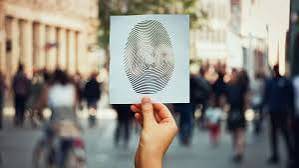Understanding Culture: The Heartbeat of Human Identity and Society
Culture is the essence of human life. It encompasses the beliefs, customs, traditions, values, languages, arts, and social behaviors that define different groups of people. Culture shapes our perceptions of the world, influences our actions, and connects us to our communities. It’s the framework through which we understand our individual and collective identities. From the food we eat to the way we communicate, culture plays a crucial role in shaping who we are and how we interact with others.
What is Culture?
At its core, culture is the shared knowledge and practices that are passed down from generation to generation. It encompasses the norms, traditions, and ways of life that are common within a particular group or society. Culture can be seen in tangible things like art, music, clothing, and architecture, but it’s also present in intangible aspects such as beliefs, values, social practices, and rituals.
Culture is often thought of in terms of national or ethnic identity—such as the unique cultures of India, Japan, or Brazil—but it can also exist on smaller scales. For example, family cultures, regional cultures, or even subcultures within a city can have their own distinct traditions and ways of life. Cultural expression is not static; it evolves over time, influenced by social, political, and economic changes, as well as by the interactions between different cultures.
The Components of Culture
Culture is made up of several key components that shape the way people live and interact with the world. These components include:
1. Language
Language is perhaps the most fundamental aspect of culture. It is the primary means through which people communicate, share ideas, and pass on knowledge. Language also reflects the worldview of its speakers, with certain words or phrases that may not have direct translations in other languages, indicating unique cultural concepts and experiences. Beyond spoken language, non-verbal communication, such as body language and facial expressions, also plays a vital role in cultural expression.
2. Values and Beliefs
Every culture is underpinned by a set of shared values and beliefs. These can include concepts of morality, what is considered right and wrong, and beliefs about religion, family, and the environment. For example, some cultures prioritize individualism and personal freedom, while others emphasize collectivism and community responsibility. These values guide decision-making, behaviors, and social interactions within the culture.
3. Traditions and Rituals
Traditions and rituals are an essential part of any culture. They help to preserve a sense of continuity and provide structure to life. Celebrations such as holidays, festivals, and ceremonies are often rooted in cultural history and offer a sense of identity and belonging. These rituals can range from the celebration of a new year to religious rites of passage, each carrying significant meaning for those who participate.
4. Art and Expression
Culture is often expressed through various forms of art, including music, dance, theater, and visual arts. These creative expressions serve as both a reflection of cultural identity and a way of preserving history. Through music, storytelling, and painting, cultures communicate their values, experiences, and aspirations. Art often becomes a way to challenge societal norms and express emotions that might be difficult to articulate with words.
5. Social Norms and Customs
Social norms are the unwritten rules about how people should behave in a society. They dictate how people interact with each other and what is considered acceptable or unacceptable in social situations. Customs related to greetings, eating, and dress vary from culture to culture, and they help individuals navigate social interactions and build relationships.
The Role of Culture in Society
Culture is the foundation upon which societies are built. It gives people a sense of belonging and purpose, helping to establish a shared understanding of the world. It’s through culture that individuals learn how to behave, communicate, and connect with others. Without culture, societies would lack coherence and shared meaning, and individuals would struggle to find their place within the larger community.
Culture also plays a significant role in shaping societal development. It influences social systems, political structures, and economic practices. For example, a culture that values education and intellectual pursuit may have robust educational institutions, whereas a culture that prioritizes family might have more close-knit communities. Similarly, cultural values can impact a society’s approach to issues like human rights, gender roles, and environmental stewardship.
The Influence of Globalization on Culture
In today’s interconnected world, cultures are constantly interacting and influencing one another. Globalization has made it easier for people from different cultural backgrounds to exchange ideas, goods, and practices. This has led to the blending of cultures, giving rise to new forms of cultural expression. However, globalization has also raised concerns about the erosion of traditional cultures and the loss of cultural diversity.
While exposure to different cultures can enrich individuals and societies, it’s important to preserve the unique aspects of culture that make each group distinct. Efforts to safeguard cultural heritage—through education, language preservation, and the celebration of local traditions—are essential in maintaining cultural diversity in an increasingly globalized world.
Conclusion
Culture is the heartbeat of human society, shaping our identities, values, and behaviors. It connects us to our past, informs our present, and guides our future. Whether expressed through language, traditions, art, or social norms, culture is a powerful force that influences every aspect of life. As we continue to interact in an increasingly globalized world, understanding and appreciating the diversity of cultures will be essential in fostering respect, cooperation, and mutual understanding. Culture is not just a reflection of who we are; it’s the foundation of who we can become.




No comments yet
Be the first to share your thoughts!